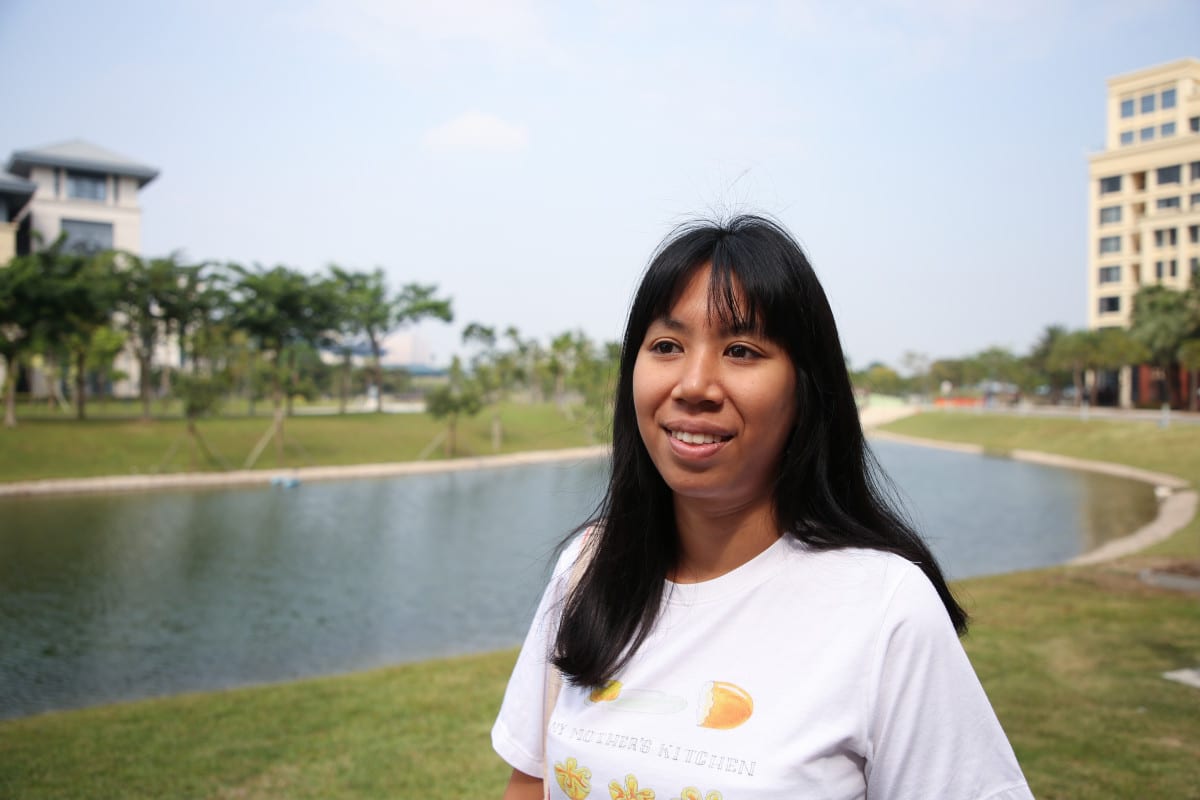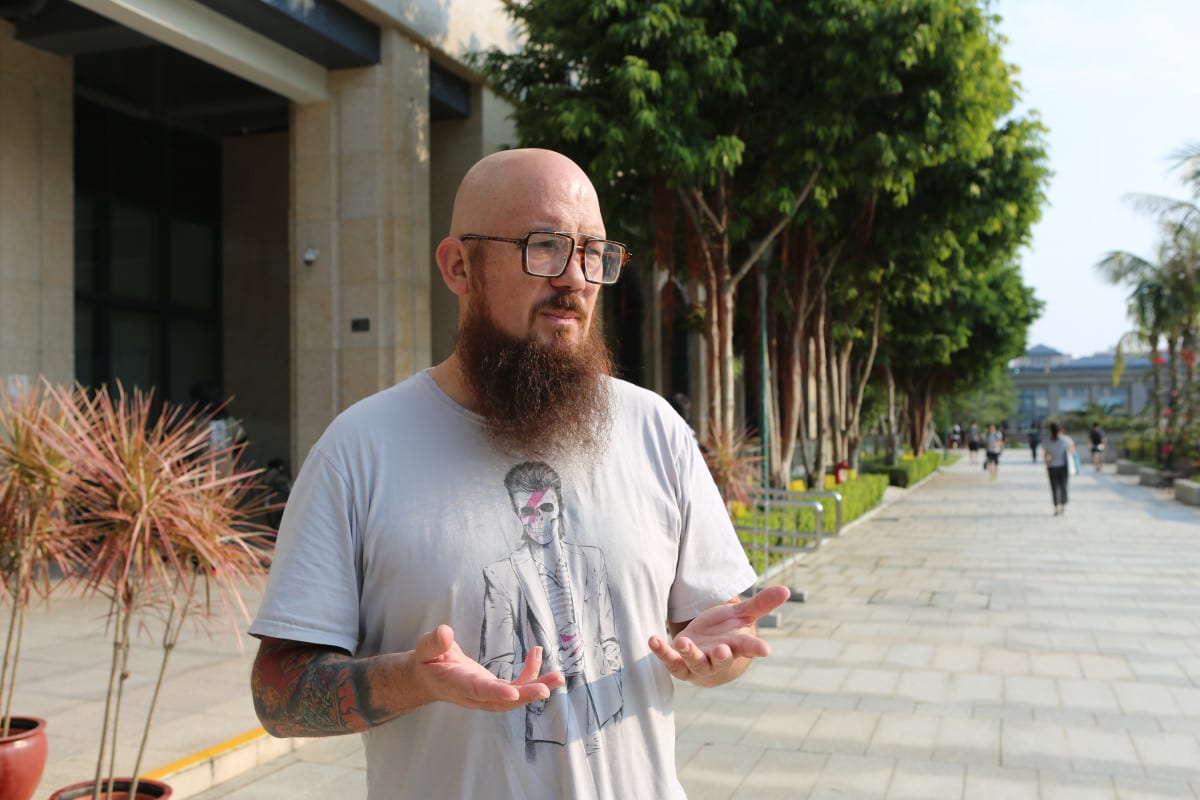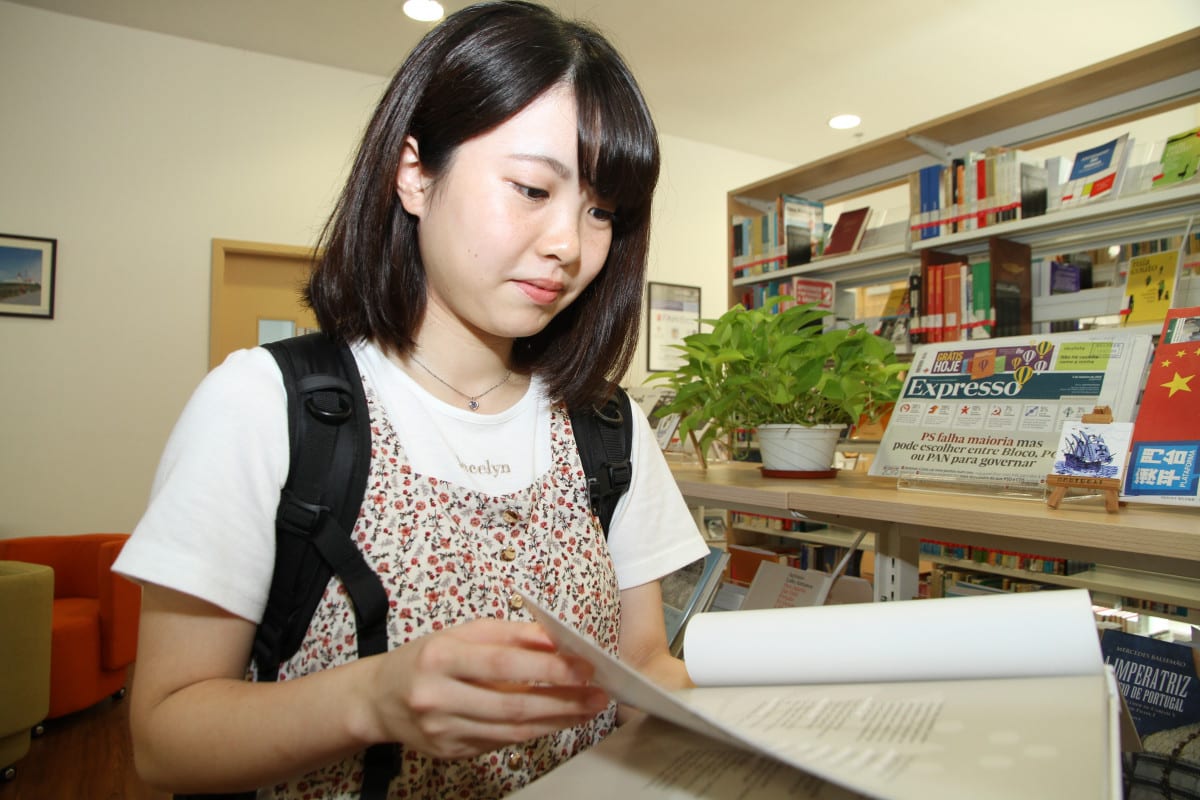Walk around the University of Macau (UM), and you will see faces from different countries. UM offers a variety of academic programmes for students to choose from. Some choose to come here to study or improve their Portuguese. In this issue, we interview four international students to learn about their reasons for choosing to study Portuguese at UM.
The Best Portuguese Language Teaching Entity in Asia
Jung Jisook, a third-year student from South Korea, is on a two-semester exchange programme at the University of Coimbra in Portugal, which is part of her undergraduate studies at UM. Before joining UM, she was a student of Portuguese at Dankuk University in Seoul, South Korea. According to Jung, her professors in South Korea told her that Portuguese language education at UM is the best in Asia, so she decided to come to UM.
Before becoming a full-time student at UM, Jung participated in a three-week Portuguese summer course organised by the university’s Department of Portuguese. ‘During the three-week course, I met many people from different countries and learned about their cultures and languages. I realised that I could improve my language skills more effectively by moving out of my comfort zone,’ says Jung.
Jung Jisook
On her life as a UM student, Jung says, ‘In the past two years, my professors taught me how to develop proficiency in Portuguese. They were really helpful, and that is why I have never considered giving up on the language.’ She says that UM provides local and international students with the same level of support in many areas. For example, she was given a subsidy for the exchange programme.
Great Interest in Portuguese Culture
Lanlalit Samanuhat from Thailand is a master’s student. Her friends at UM call her Jib. She says Thailand and Portugal have maintained centuries of friendly relations. Jib became interested in Portuguese culture and started learning the language when she was still a secondary school student.
After graduation from Chulalongkorn University in Bangkok, Jib received a scholarship from the Camões Institute to study in Lisbon for one year and later worked at the Embassy of Portugal in Thailand as an assistant to the ambassador. At the embassy, she helped arrange cultural activities such as Portuguese classes and film screenings for children, where she found her direction for further study.
Lanlalit Samanuhat
At UM, Jib focuses on Portuguese language and intercultural studies. She says, ‘Intercultural studiesare very interesting, even more so when they are done in Macao, which I think is like a mix of Asia and Portugal. The things that I’m learning from the classes have exceeded my expectations. I am sure it will be very useful for my future career and academic advancement.’ Jib also says that she would love to become a professor of Portuguese, with a focus on literature and translation. ‘I can teach Thai students about Macao. Because when Thai people think about countries associated with the Portuguese language, the only ones that come to their mind are Brazil and Portugal. But I know we also have Macao which is so close to us and also has rich Portuguese cultural heritage.’
Leading Experts in Portuguese Studies
Sandro Brincher is a PhD student from the State of Rio Grande do Sul in Brazil. He holds a bachelor’s degree and a master’s degree in Portuguese-language literature earned from the Federal University of Santa Catarina, but has worked in game design for many years. At UM, Sandro studies online gaming interactions between Portuguese-speaking players. He explains, ‘It is noticeable that Portuguese speakers from Europe, Brazil and Africa use different methods to interact with other people and to make sense of the world around them, and they also exhibit different habits when interacting with their peers on online gaming systems. But that is not just because they speak different varieties of the Portuguese language; there are many other factors to be considered. That is why I am interested in exploring the ethno-methods players use for such interactions in unique settings, and this is one of the many possible things a researcher can do through ethnomethodology and conversation analysis.’
Before coming to Macao, Sandro studied Chinese in Guangzhou, China, where some of his Brazilian friends told him about UM. The professors in the Department of Portuguese come from Brazil, Portugal, mainland China, Macao and other parts of the world, and Sandro says that many of them are leading experts in their fields. He says, ‘The professors are very friendly andare always willing to talk to us. We sometimes even have dinner together. Whenever I come up with some research ideas, all I have to do is knock on their office doors, and they are always willing to talk to me. More importantly, I feel their commitment to creating and maintaining ties between China and Portuguese-speaking countries, which is reflected in the events and activities organised by the department.’
Sandro says that he immediately felt an atmosphere of warmth when he stepped onto the UM campus. Over the past year or so, he has met many people on campus from different cultural backgrounds. ‘The most interesting thing is that I have built a closer relationship with students from mainland China than I did when I was actually living there,’ says Sandro. ‘Here, I feel a greater intellectual affinity between us. And because of that, they stop being just casual acquaintances with whom I just say “hello” and “goodbye”.’ Outside the campus, Sandro often gets on a random bus at the Praça Ferreira Amaral bus terminus, and gets off the bus whenever he spots something interesting to take pictures. He says he does it because he wants to experience Macao’s unique mix of cultures firsthand.
Macao, A Mixture of Eastern and Western Cultures
Born in Nagoya, Japan, Kanna Nakahara is an exchange student from the Department of Brazilian and Portuguese Studies at Kyoto University of Foreign Studies. There is a large Brazilian community in her hometown and she made a good friend from Brazil when she was in high school, which triggered her interest in learning Portuguese. She came to UM in August on a two-semester exchange programme with a Japanese classmate. They currently live in Choi Kai Yau College.
Kanna says, ‘My professors in Japan usually teach Portuguese language courses in Japanese, but my classes here at UM are taught entirely in Portuguese. I think it is quite a challenge, but will certainly improve my language skills.’ A first-time visitor to Macao, Kanna says she is fascinated with the city’s unique mix of Eastern and Portuguese cultures.
Apart from learning Portuguese, she hopes to make more foreign friends in Macao. In fact, she has already made many friends in the past two months, some from Macao, others from mainland China, Portugal, and the United States. She has even started learning Chinese at UM. ‘After graduation, I want to work at an airport in Japan to help visitors from Portuguese-speaking countries, especially Brazil,’ Kanna says.




